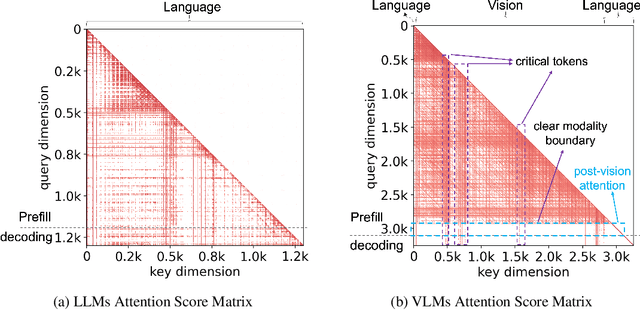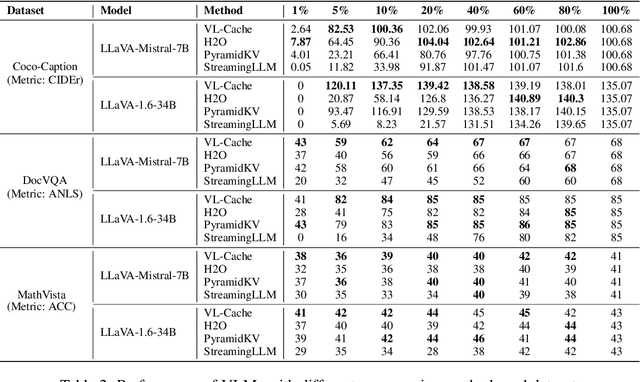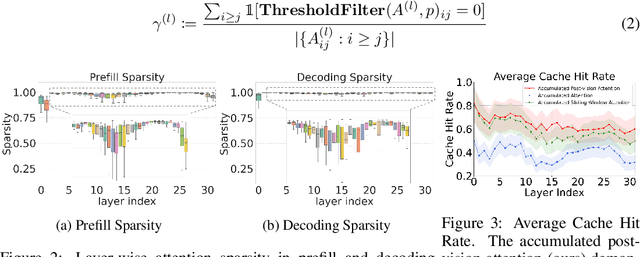Dezhan Tu
VL-Cache: Sparsity and Modality-Aware KV Cache Compression for Vision-Language Model Inference Acceleration
Oct 29, 2024



Abstract:Vision-Language Models (VLMs) have demonstrated impressive performance across a versatile set of tasks. A key challenge in accelerating VLMs is storing and accessing the large Key-Value (KV) cache that encodes long visual contexts, such as images or videos. While existing KV cache compression methods are effective for Large Language Models (LLMs), directly migrating them to VLMs yields suboptimal accuracy and speedup. To bridge the gap, we propose VL-Cache, a novel KV cache compression recipe tailored for accelerating VLM inference. In this paper, we first investigate the unique sparsity pattern of VLM attention by distinguishing visual and text tokens in prefill and decoding phases. Based on these observations, we introduce a layer-adaptive sparsity-aware cache budget allocation method that effectively distributes the limited cache budget across different layers, further reducing KV cache size without compromising accuracy. Additionally, we develop a modality-aware token scoring policy to better evaluate the token importance. Empirical results on multiple benchmark datasets demonstrate that retaining only 10% of KV cache achieves accuracy comparable to that with full cache. In a speed benchmark, our method accelerates end-to-end latency of generating 100 tokens by up to 2.33x and speeds up decoding by up to 7.08x, while reducing the memory footprint of KV cache in GPU by 90%.
Auto-Validate by-History: Auto-Program Data Quality Constraints to Validate Recurring Data Pipelines
Jun 04, 2023



Abstract:Data pipelines are widely employed in modern enterprises to power a variety of Machine-Learning (ML) and Business-Intelligence (BI) applications. Crucially, these pipelines are \emph{recurring} (e.g., daily or hourly) in production settings to keep data updated so that ML models can be re-trained regularly, and BI dashboards refreshed frequently. However, data quality (DQ) issues can often creep into recurring pipelines because of upstream schema and data drift over time. As modern enterprises operate thousands of recurring pipelines, today data engineers have to spend substantial efforts to \emph{manually} monitor and resolve DQ issues, as part of their DataOps and MLOps practices. Given the high human cost of managing large-scale pipeline operations, it is imperative that we can \emph{automate} as much as possible. In this work, we propose Auto-Validate-by-History (AVH) that can automatically detect DQ issues in recurring pipelines, leveraging rich statistics from historical executions. We formalize this as an optimization problem, and develop constant-factor approximation algorithms with provable precision guarantees. Extensive evaluations using 2000 production data pipelines at Microsoft demonstrate the effectiveness and efficiency of AVH.
 Add to Chrome
Add to Chrome Add to Firefox
Add to Firefox Add to Edge
Add to Edge